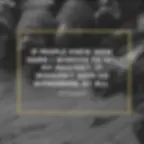The myth of talent
- Suzanne Allard
- Dec 5, 2022
- 4 min read
Updated: Feb 8, 2023
This may sound radical but I believe the concept of talent has caused untold damage to the human creative spirit. We are given messages from teachers, parents, family, friends, and "experts" throughout our lives that someone either has a talent for something or they don't and that's that. This idea shuts down creativity like nothing else. We will never know the body of work that wasn't created because of this mentality. The unpainted paintings, the music that wasn't composed, the unwritten books, etc. This is probably the main reason I'm driven to teach, to unlock and draw out those creations, to coax them out of the shut-down creative spirit, to fan those flames.
In fact, when my son was four he REALLY wanted to learn the piano and so I set about finding him a teacher. I found a highly recommended piano teacher and we set up an initial session after which she said, "he really doesn't present an aptitude for piano." HE WAS FOUR YEARS OLD!! And he had a lot of motivation and desire to learn it. What kind of teacher does that?? I ignored her of course and found him another wonderful teacher. He played for a few years, went on to other musical pursuits, and is now a Music Audio Production major in college. I'm sure you have your own "creativity shut down" stories too.
This limited notion of talent causes us to:
A) Not pursue anything that doesn't come easily and
B) Flounder about trying to find our "talents," which we think means something we are naturally good at without much practice or effort and which we may never find.
In fact, the Oxford definition of talent is, "a natural aptitude or skill." If you take it further, the definition of aptitude is, "a natural ability." Most of us think that something natural means it just flows. It's easy and effortless. We think that if we had this "effortless talent" it would just show up, make itself known, and all we'd have to do is execute whatever that talent is.
So there are at least two ways this concept trips us up, one is that we think it means that in order to possess talent, we should naturally be able to paint a gorgeous floral bouquet for example, or easily throw together an abstract painting that has good composition or a landscape that captivates us. The other is that we think that unless we possess this kind of talent, there is no point in trying, it will come to nothing and it's a waste of time.
Let's address the first issue and look at a deeper meaning for talent that is more helpful and comprehensive.
I always tell students "don't worry about talent, don't even think about it." If you have a strong desire to create; if you look at what I or others paint and you really desire to be able to create like that but in your own style and that feeling won't go away and is strong enough to drive you to act consistently then that is a huge part of building "talent." Talent is really just the result of skill building and intuition that comes from a lot of practice and work. Bob Ross says it beautifully:

My advice is either don't even consider talent and whether or not you have it, or redefine it for yourself and think of it more as a strong desire or yearning that will be the fuel for your creative engine. Another thing I say frequently to students is that if you have a strong desire to create then with enough determination you can develop the capability. So for our purposes, it's more helpful to redefine talent as:
A yearning to express that create that won't go away.
A feeling that you won't be complete or feel fulfilled if you don't pursue this thing in some way, shape, or form.
A strong desire for self-expression that comes from within you.
A strong attraction to color, texture, shape, pattern, or materials that just draws you in.
As Stephen King and Maya Angelou say:


If you reframe talent this way, the second issue of thinking that if "we don't have a natural aptitude then it's pointless to try" goes away because we aren't expecting "effortless talent." We know that the feelings bulleted above are just the beginning of the creative process. That it will take effort, time, practice, trial and error, lots of failure, and "ugly stages" of paintings before we like what we create. So, because we expect difficulty, we are less apt to quit and tell ourselves that we have no talent. Author Malcolm Gladwell refers to the “10 000-hour rule,” stating that the key to achieving true expertise in any skill is simply a matter of practicing, albeit in the correct way, for at least 10 000 hours. Well, we are having fun here, so we don't have to spend that much time but you get the idea.
Do things seem to come easier to some more than others? Does it seem like some people have a sense of color and composition more than we do? Maybe, but we don't really know because we don't know how much work, time, and practice they put in, they may have been drawing from a young age or grown up with artists - who knows? I leave you with Michelangelo and Picasso and hope that this article inspires you to get creating if you so desire! I welcome your comments below on this topic 😊.






